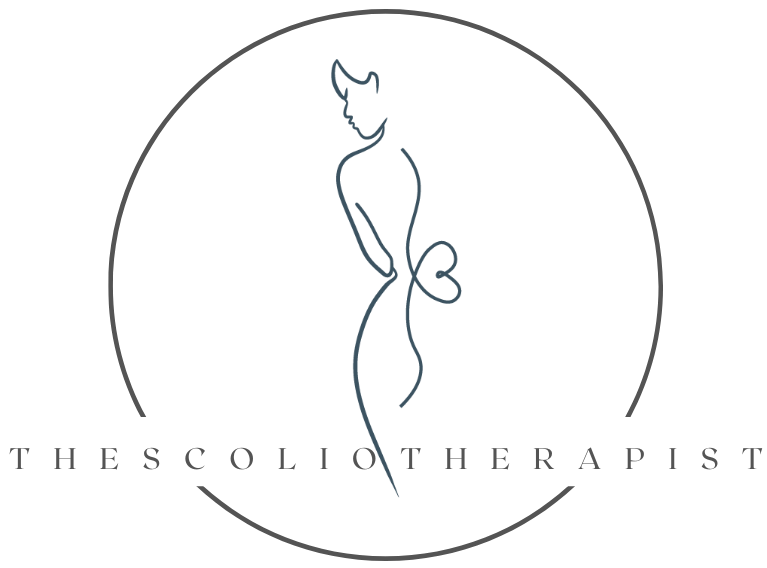Scoliosis Counseling With Katelyn Carlson
Mental health is one of the most overlooked aspects of scoliosis. Getting diagnosed (or having your child get diagnosed) with scoliosis can significantly affect your mental health, and it’s important to recognize and address this issue.
I recently talked with Katelyn Carlson, a licensed massage therapist, yoga instructor, and somatic psychotherapy expert who provides 1:1 scoliosis counseling and support for patients (teens and adults) and parents of teens with scoliosis. She helps her clients understand and cope with the emotional aspects of scoliosis. Her goal is to help people understand the whole scope of living with this chronic illness and its impact on their physical, emotional, and mental health.
What It’s Like to Grow Up With Scoliosis
Katelyn was diagnosed with scoliosis as a child and wore a brace from the time she was 12 until she turned 18. She uses her own experience to help other teens, parents, and adult scoliosis patients process their diagnoses and understand how their condition affects their ongoing interactions in the world.
Katelyn and I talked about what it was like for her to wear a brace during most of her teenage years. She shared how frightening it was to hear doctors tell her with certainty what the rest of her life would look like due to her condition.
She also talked about how much bracing limited her ability to participate in activities she enjoyed. Katelyn grew up playing basketball and volleyball but was eventually told by her provider that she could only do one. Playing two sports would not allow her to spend “enough” time in her brace.
As she’s grown older, gone through therapy, and learned more about herself, Katelyn has found freedom and empowerment in her own journey with scoliosis. She works with teens and parents to help them gain critical knowledge and explore those deep feelings earlier in life.
Fear-Based Messaging
One of the challenges that Katelyn experienced as a child and teen was fear. Her doctor used fear-based messaging to encourage her to wear her brace and complete her physical therapy exercises. Otherwise, he said, her spine would twist so much that her lungs and heart would fail. That’s traumatic for anyone, especially a 12-year-old, to hear!
Katelyn hears from many of her clients that this type of fear-based “encouragement” is still commonly used by doctors during scoliosis diagnosis and treatments. Part of Katelyn’s approach with her clients is to help them work through the trauma of this type of messaging.
How Scoliosis Affects Parent-Teen Relationships
When Katelyn was a teenager, she didn’t feel comfortable sharing many of her feelings and thoughts about her condition with her parents. And she finds that is a common issue with her clients today, so she offers counseling to help parents and teens find safe, positive ways to talk about scoliosis.
Many teens feel like sharing their mental and emotional struggles with their parents is unfair. They think their parents already have too many worries and don’t want to add to that burden. Although this may sound like a good motivation for keeping silent, it’s detrimental to everyone in the long run.
Part of Katelyn’s work with teen clients is to help them understand how to safely share those feelings with their parents. She also works with parents to help them develop the communication skills necessary to facilitate those conversations with their children.
Curiosity Over Resistance
Katelyn has found it useful to change her approach to her condition from resistance to curiosity. Instead of always wishing she could get rid of scoliosis and focusing on the negative aspects of it, she tries to be curious about it. Katelyn has found that curiosity supports better mental health and allows her to learn new things about herself and her body.
That’s not to say that negative feelings should be ignored. One of the first things that Katelyn does with her clients is to encourage parents to allow their teens to feel and express all those negative emotions. By encouraging them to express anger, sadness, and resistance, parents can create a safe space for their teens. When teens feel they have a place to express their feelings, they’re often more open to shifting that perspective.
Managing the Mental and Physical Aspects of Scoliosis
Along with her 1:1 counseling services, Katelyn offers virtual courses on her website. One of her most popular courses is designed to help parents prepare themselves and their teens for doctor’s appointments, which are often stressful and overwhelming. Katelyn will also host an upcoming workshop to help people understand and respond to the physical manifestation of emotions.
If you want to manage your scoliosis symptoms through exercise, you can work with me! I offer a range of services including 1:1 and small-group coaching. The Scoliosis Strength Collective is my 6-month virtual small group program that helps you understand your curve and support it through scoliosis-specific exercise. Find out more about The Scoliosis Strength Collective, or schedule a free discovery call to determine which service is right for you.
Resources Mentioned
Find Katelyn here:
The Scoliosis Strength Collective
